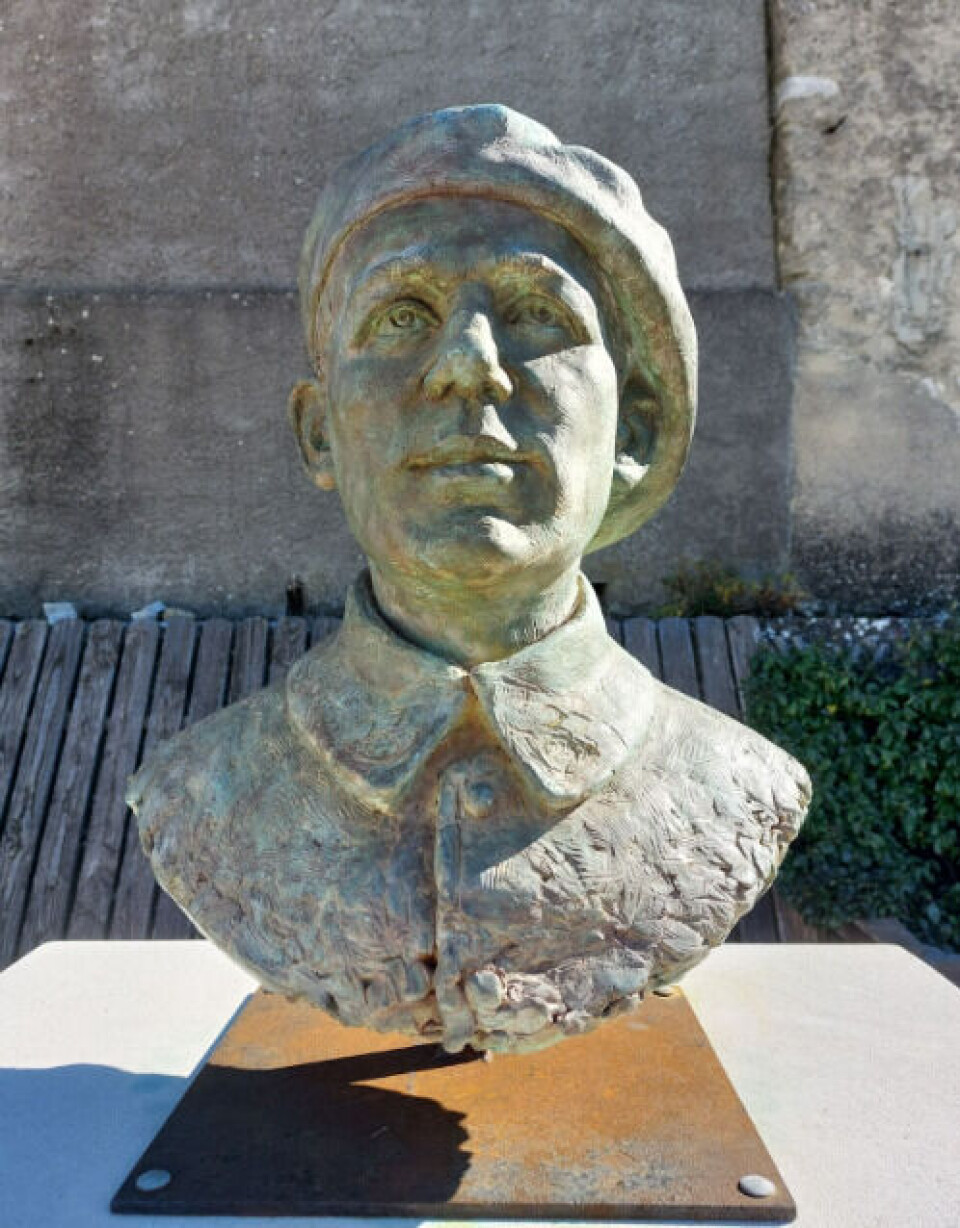-
More than 5,000 French communes use AI to identify poor rubbish sorting
Badly-sorted rubbish can cost millions so communes are turning to high-tech solutions
-
Tax on well-off retirees under consideration for 2026 budget
‘Nothing is off the table’ when it comes to finding €40 billion in savings says Labour Minister
-
Nice airport records passenger boom as tourists flock to city
Airport figures exceeded the pre-Covid record last year, with US visitors significant contributors
French World War One hero gains popularity boost from metal song
France’s most decorated World War One hero was honoured by a Swedish heavy metal band in a 3D-animated clip. The mayor of his hometown village expects more fame to come

A French hero from World War One has been praised in a song by one of the world’s most popular metal bands, in a video that already has over a million views online.
Albert Séverin Roche, one of the most decorated French soldiers in World War One, was honoured in an animated video clip released by Sabaton, a popular Swedish heavy metal band.
The song is titled ‘The First Soldier’, the nickname of Mr Roche given to him by French general Ferdinand Foch.
He was known for displays of extraordinary bravery and for capturing more than a thousand German soldiers, despite having first been regarded as an outcast by his peers.
In 1937, Mr Roche was awarded with a Légion d'honneur medal and La Poste released a tribute stamp in June 2018.
However, Mr Roche’s fame has remained relatively unknown, with his story not gaining much fame, especially outside of France.
Read also: World War One anti-tank gun stored in attic in France to be kept
A rise in interest levels
Norbert Perrin, mayor of Réauville (Drôme) Mr Roche’s hometown, said that the song adds to a growing list of interest, ranging from government officials to historians, all interested in the soldier’s exploits.
Two tribute steles were erected in Réauville in 1971 and 2022 to commemorate Mr Roche.
“I didn’t know the band, nor did I know this genre of music to be honest,” said Mr Perrin, regarding the online clip.
Born in 1895 to a family of farmers, Mr Roche was 18 when World War One broke out.
Despite initial efforts to enlist in the army, recruiters considered him too short and not robust enough to fight and rejected him.
He fled his family’s farm and joined a training camp where he was mocked and ridiculed for his small stature.
Arrested for desertion as he tried to escape the camp to join the front, he was sent to the 27th ‘chasseur alpins’ battalion for punishment. This battalion fought in the Alsace region during the war, often in brutal trench warfare.
Injured nine times, Mr Roche is said to have captured more than 1,180 soldiers. He was chosen as one of the soldiers to carry the coffin of the unknown soldier under the Arc de Triomphe in Paris.
However, Mr Perrin said that the war hero never looked to brag, or even discuss his accomplishments after the war finished, leaving Mr Roche’s story largely unknown until his grandchildren began to tell it.
Road to history books
Now, Mr Perrin and Réauville’s officials are on a quest to give Mr Roche the recognition he deserves.
The children of the town wrote a letter to President Emmanuel Macron for World War One’s century celebration, and the president mentioned Mr Roche’s exploits in 2020.
Mr Perrin said he agreed with the letter’s argument that Mr Roche’s was a fitting tale for a president whose terms looked to revive France’s past glory.
“The president made a reference to Mr Roche during the speech that celebrated the burial of French writer Maurice Genevoix to the Panthéon. That was important to us,” said Mr Perrin.
A second tribute stele was erected in the village on September 16, 2022, several months after a first copy was revealed at the 27th chasseur alpin barracks in Annecy.
Réauville officials are now looking into the possibility of opening a museum dedicated to him.
But Mr Perrin expects an even bigger step.
“We want him to be a part of France’s history books,” he said.
Related articles
Last survivor of French war massacre village Oradour-sur-Glane dies
MBE awarded to British woman who trained WW2 spies for French missions
























